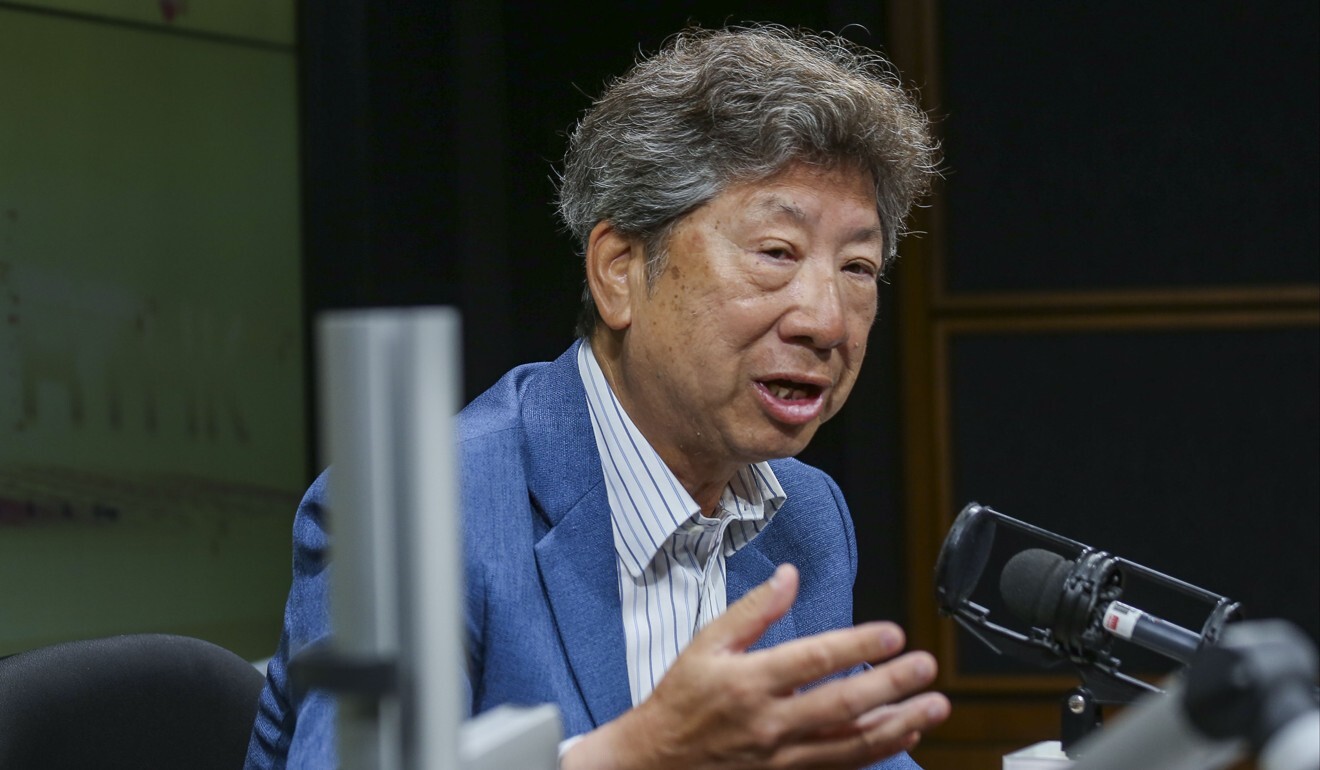
Apple Daily parent weighs Security Bureau request for ‘sensitive information’ as it seeks to have assets unfrozen, pay final wages
- The bureau has asked the company to turn over a list of staff names as part of the ongoing negotiations, according to an insider
- The revelation has sparked fears among employees that they could find themselves targeted by the authorities
But some staff members were staunchly opposed to any such move as they feared the disclosure could invite retaliation by authorities, sources said on Saturday.
“We are not pinning our hopes on getting back wages from the company,” a former staff member familiar with the negotiation said on condition of anonymity. “But we don’t want colleagues to live in new fear if the names of all staff are surrendered to the government.”
The board of directors Next Digital was originally expected to meet again on Monday to consider and approve the annual report for 2020-21. But that meeting has been postponed until further notice.

A spokeswoman for the bureau refused to confirm whether it was seeking information from the media outlet as legal proceedings were ongoing, but said the secretary for security would “handle in accordance with the law any application related to the frozen property”.
The request was revealed in an internal email sent on Friday containing an update from the human resources department on the progress of negotiations for the release of the funds.
“Our group applied to unfreeze the funds for salary payment, but the Security Bureau requested our group to provide more sensitive information,” the email stated. “As this involves personal privacy, the management is currently reviewing and following up the matter with the legal team.”
Apple Daily insiders reject using subsidiary cash to pay staff citing security law
Speaking on condition of anonymity, two people familiar with the exchanges told the Post the “sensitive information” included a list of staff names. This detail was left out “so as not to trigger fear among colleagues,” one insider said.
The Next Media Trade Union said management had not informed it about the bureau’s request, but stressed employee privacy must be a top priority.
“The management must obtain employees’ consent if they want to pass our personal data to a third party,” he said.
At least 800 people were employed by the company when it ceased operating, according to recent Apple Daily reports. The group had previously said that if the bureau rejected its request for releasing the funds, it would file an application with the Court of First Instance to revoke the order.
Editor-in-chief Ryan Law Wai-kwong and publisher Cheung Kim-hung were charged with conspiring to collude with foreign forces, alongside three subsidiaries, Apple Daily Limited, Apple Daily Printing Limited and AD Internet Limited.

The tabloid has been accused of publishing more than 30 articles calling for foreign sanctions on Hong Kong and mainland China.
A veteran reporter who covered local news and stayed until the paper closed expressed hope that management would not comply with the bureau’s request.
“How can the management ensure that the authorities won’t go against us with the information? The asset freeze was not logical, especially after the paper was forced to close. How could we endanger national security when the paper folded already?” he said.
Barrister Ronny Tong Ka-wah, a member of the city leader’s de facto cabinet said the bureau’s requirement for Apple Daily was not a legal matter and was probably related simply to the ongoing negotiations.
Tong said he could not comment on whether the bureau’s requirements for “sensitive information” were reasonable because too many other facts were unknown.

“If its assets got frozen because they are criminal evidence or crime proceeds, then they should not be unfrozen because of any other political reasons,” he said.
“We also don’t know whether Apple Daily is temporarily suspending operations or permanently doing so; or whether it is planning to liquidate the entire company or not.
“[There could be] other funds that are sufficient for them to pay their staff members apart from accounts of its three affiliated companies.”
Pro-establishment New People’s Party chairwoman Regina Ip Lau Suk-yee, who served as secretary for security between 1998 and 2003, said she believed information such as details of staff members might not necessarily be “sensitive”.
‘Repression by Beijing’ killed Hong Kong’s Apple Daily, Biden says
“The bureau has to know whether those unfrozen assets would be really used for paying staff members, or whether there might be other illegal uses. Details such as the total number of staff, as well as how much each staff member will be paid are also necessary,” she said.
Ip also said Apple Daily staff members “need not worry” about being targeted by law enforcement authorities even if some of their information was provided to the bureau.
“After all, they did not breach the law. [The government] is not [targeting] them … If they are normal frontline [journalists], I don’t think there will be any problems,” she said.
Additional reporting by Lilian Cheng


